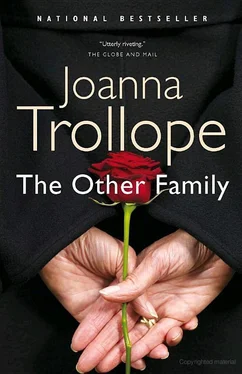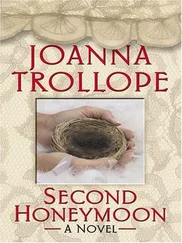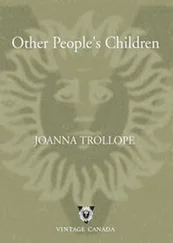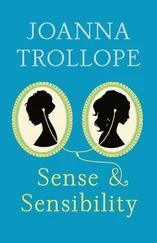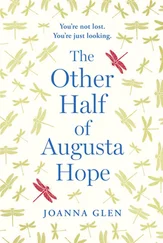Joanna Trollope - The Other Family
Здесь есть возможность читать онлайн «Joanna Trollope - The Other Family» весь текст электронной книги совершенно бесплатно (целиком полную версию без сокращений). В некоторых случаях можно слушать аудио, скачать через торрент в формате fb2 и присутствует краткое содержание. Жанр: Старинная литература, на английском языке. Описание произведения, (предисловие) а так же отзывы посетителей доступны на портале библиотеки ЛибКат.
- Название:The Other Family
- Автор:
- Жанр:
- Год:неизвестен
- ISBN:нет данных
- Рейтинг книги:5 / 5. Голосов: 1
-
Избранное:Добавить в избранное
- Отзывы:
-
Ваша оценка:
- 100
- 1
- 2
- 3
- 4
- 5
The Other Family: краткое содержание, описание и аннотация
Предлагаем к чтению аннотацию, описание, краткое содержание или предисловие (зависит от того, что написал сам автор книги «The Other Family»). Если вы не нашли необходимую информацию о книге — напишите в комментариях, мы постараемся отыскать её.
The Other Family — читать онлайн бесплатно полную книгу (весь текст) целиком
Ниже представлен текст книги, разбитый по страницам. Система сохранения места последней прочитанной страницы, позволяет с удобством читать онлайн бесплатно книгу «The Other Family», без необходимости каждый раз заново искать на чём Вы остановились. Поставьте закладку, и сможете в любой момент перейти на страницу, на которой закончили чтение.
Интервал:
Закладка:
‘What if she wants to come to the funeral?’ Dil y said. ‘What if she wants to come and make out he was—’
‘Shut up,’ Tamsin said.
She looked at her mother.
‘Let her,’ Tamsin said. ‘Let her ring.’
‘Real y?’
‘Yes,’ Tamsin said. ‘Let her do it like she said and then it’l be done. Two minutes and it’l be done.’
‘And then? ’
‘There won’t be an “and then”.’
Amy peeled herself off the cupboard and stood up. She looked as she looked, Chrissie remembered, when she learned to dive, standing on the end of the springboard, ful of excited, anxious tension. She winked at her mother, and she actual y smiled.
‘Watch me,’ Amy said.
CHAPTER TWO
More than six decades of living by the sea had trained Margaret to know what the weather was doing, each morning, before she even drew back the curtains. Sometimes there was the subdued roaring that indicated wind and rain; sometimes there was a scattering of little sequins of light reflected across the ceiling from bright air and water, and sometimes there was the muffled stil ness that meant fog.
There was fog today. When she looked out, she would see that the sea mist had rol ed up the shal ow cliffs, and fil ed the wide grassy oval in front of the crescent of houses in Percy Gardens, bumping itself softly against the buildings. There would be shreds and wisps of mist caught in the fancy ironwork of the narrow balcony outside her bedroom window, and in the crooked cherry tree in the front garden. There would be salty smears on the window glass and the cars parked along the crescent and on the front-door brass that needed, real y, daily polishing. And there would be this eerie silence, a muted quality to al the usual morning noise of slammed front doors and car engines starting and the woman two doors down shouting at her dogs, who liked to start the day with a good bark.
Margaret got out of bed slowly and felt for her slippers with her feet. They were good slippers: sheepskin, of enduring construction, as was her padded cotton dressing gown patterned with roses and fastened with covered buttons, and although the sight of herself as she passed the mirror on her bedroom wal caused her to pul a face, she knew she looked appropriate. Appropriate for a professional woman – not yet retired – of sixty-six living in a house in Percy Gardens, Tynemouth, with a double front door and a cat and a large stand of plumed ornamental grasses outside the sitting-room window.
She opened the curtains and surveyed the mist. It was ragged and uneven, indicating that a rising wind or strengthening sun would disperse it quite quickly. A seagul – an immense seagul – was standing just below her, on the roof of her car, no doubt intending, as seagul s seemed to enjoy doing, to relieve itself copiously down the windscreen. Margaret banged on the window. The seagul adjusted its head to indicate that it had observed her and intended to ignore her. Then it walked stiffly down the length of her car roof, and turned its back.
Margaret went down the stairs to her kitchen. On the table, wearing much the same expression of insolent indifference as the seagul , sat a huge cat. Scott had brought him home as a tiny, scrawny tabby kitten some eight years before, having rescued him from a group of tormenting children on the North Shields quayside, and he had grown, steadily and inexorably, into a great square striped cat, with disproportionately smal ears and a tail as fat as a cushion.
‘I don’t particularly like cats,’ Margaret had said to Scott.
‘Nor me,’ he said.
They looked at the kitten. The kitten turned its head away and began to wash. Margaret said, ‘And I don’t like surprises either.’
‘Mam,’ Scott said, ‘this’l stop being a surprise soon. You’l get used to it.’
She had. Just as she had got used to a lot of other things, she got used to the kitten. Indeed, she realized how used to the kitten she had become when she found herself explaining to him that one of the main things about life that he should realize was that it consisted of, in fact, getting used to a great many things that were the result of other people’s choices, rather than one’s own. For the first year, the kitten was simply cal ed the kitten.
Then, as his bulk and solidity began to take shape as he grew, Scott christened him Dawson, after the comedian.
Dawson put out a huge paw now, as Margaret passed him on her way to the kettle, and snagged her dressing gown with a deliberate claw.
‘In a minute,’ Margaret said.
Outside the kitchen window, the sea mist had been diluted by having to slide up over the roofs, and the air here merely had a vague bleary look.
The little paved yard – a patio, her neighbours preferred to cal it – that passed for a back garden simply gave up in this kind of weather. Everything hung damply and dankly, and blackened leaves plastered themselves against surfaces, like flattened slugs. Margaret’s neighbour, on her left-hand side, had been infected by holidays in Spain, and had painted her patio white, inset with mosaic pictures made with chips of coloured glass and mirror, and hung wrought-iron baskets on the wal s which were intended to spil avalanches of pink and orange bougainvil ea. But bringing abroad back to Tynemouth was not Margaret’s way. Abroad was abroad and the English North was the English North. What was unhappy growing beside the North Sea shouldn’t, in her view, be required to try.
She made tea for herself, in a teapot, and shook a handful of dried cat food into a plastic bowl from a box which declared the contents to be designed for senior cats with a weight problem. She put the bowl on the floor. Dawson thudded off the table, inspected his breakfast with contempt and sat down beside it, not looking at Margaret.
‘You won’t get anything else,’ Margaret said. She poured out her tea. ‘You can sit there al day.’ She added milk. ‘It’l do you no harm to fast for a day, anyhow.’
Dawson’s thick tail twitched very slightly.
Margaret picked up her tea, preparatory to going upstairs. ‘I’l leave you to think about it.’
Dawson regarded the wal straight ahead of him. Margaret went past him, making a smal detour to beyond claw-reach – how extraordinary it was, the intimate knowledge two living organisms who shared a house had of one another – and climbed the stairs. They had recently been recarpeted, with a good-quality wool-twist carpet in pale grey. Scott had suggested sisal, or seagrass. Margaret said she wasn’t a bachelor (she emphasized the word, as if to underline her opinion of Scott’s abiding single state, at the age of thirty-seven) in a loft , in Newcastle , and that what was appropriate to Percy Gardens was a hard-wearing wool twist in a neutral colour. She was pleased with the result, pleased with the resilience provided by the thick foam-rubber underlay. A new carpet, she reflected, had the same effect on a house as mowing a lawn in regular stripes did on a garden.
Dressing was not a matter of indecision for Margaret. For the twenty-three years or so that she had been on her own, she had kept to a number of habits which she had first devised as a way of keeping the grief and shock of being deserted at bay. Because she had, after Richie’s departure, gone on doing for other people what she had once done – and very successful y – for him, there was a requirement to dress with professional care on a daily basis. In the early days without him, there was also of course an obligation to display an energizing measure of bravado, a need to show the world that her spirit had not been crushed, even if her heart had temporarily been broken. She had, from a week or two after he left, decided each night what she would wear the next day, got it out of her wardrobe, inspected it for stains or fluff, and hung it up for the morning, like a quilt put out to air. Sometimes, in the morning, she would feel inexplicably reluctant about the previous night’s choice, but she never changed her mind. If she did, she was afraid, in some mysterious superstitious part of her mind, that she would just go on changing and changing it until her bedroom was a chaos of discarded clothes, and she was a weeping, wild-haired wreck in the middle of it al .
Читать дальшеИнтервал:
Закладка:
Похожие книги на «The Other Family»
Представляем Вашему вниманию похожие книги на «The Other Family» списком для выбора. Мы отобрали схожую по названию и смыслу литературу в надежде предоставить читателям больше вариантов отыскать новые, интересные, ещё непрочитанные произведения.
Обсуждение, отзывы о книге «The Other Family» и просто собственные мнения читателей. Оставьте ваши комментарии, напишите, что Вы думаете о произведении, его смысле или главных героях. Укажите что конкретно понравилось, а что нет, и почему Вы так считаете.
